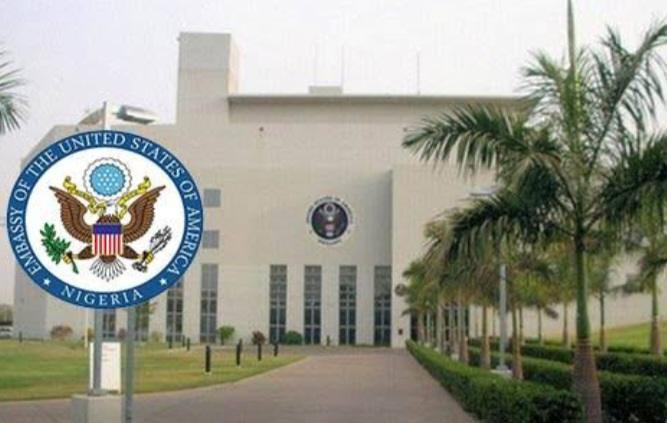The United States has warned its employees and American citizens to avoid “non-official” visits to Nigerian military bases and government facilities, citing increased global security concerns.
The alert, published on the U.S. Mission’s official website on Sunday, comes on the heels of a deadly Boko Haram suicide bombing that killed over 20 people in Borno State and escalating military tensions between Israel and Iran, including recent U.S. airstrikes on Iranian nuclear facilities.
“Due to increased security concerns arising from current global developments, U.S. Mission Nigeria informs U.S. citizens that all U.S. embassy employees and their families are prohibited from non-official travel to a Nigerian military site or other government venue in Abuja at this time,” the statement said.
The Mission urged all American citizens in Nigeria to exercise heightened vigilance, particularly in public spaces and venues frequented by Westerners, expatriates, and government officials.
“Stay alert in public places, avoid large gatherings, and consider limiting unnecessary travel,” the advisory read.
“Avoid predictable routines. Familiarise yourself with emergency exits when you enter buildings. Review your personal security plans.”
Fears of wider instability have grown following U.S. military strikes on Iranian nuclear sites over the weekend, in response to Iran’s alleged backing of attacks on Israeli targets.
The airstrikes have intensified an ongoing missile exchange between Israel and Iran, now entering its second week.
Notably, Israel’s initial strikes killed several top Iranian military leaders and six nuclear scientists.
Read also:
- African Union urges United States to rethink new travel ban on Africans
- United States strengthens Nigeria’s counter-nuclear smuggling capacity
- Two police officers shot during July Fourth celebration in United States
Security analysts suggest that with global tensions on the rise, foreign missions and diplomatic facilities, especially in volatile regions like West Africa, may become soft targets for retaliatory actions by extremist elements.
The U.S. advisory reflects these growing risks, particularly for high-profile venues and institutions associated with Western governments.
The embassy’s instructions also echo standard security protocols in periods of elevated global threat levels.
Nigerian authorities have yet to issue an official response to the U.S. warning, though military and intelligence sources confirmed that local security forces have intensified protection around diplomatic missions and key government sites in the Federal Capital Territory.






